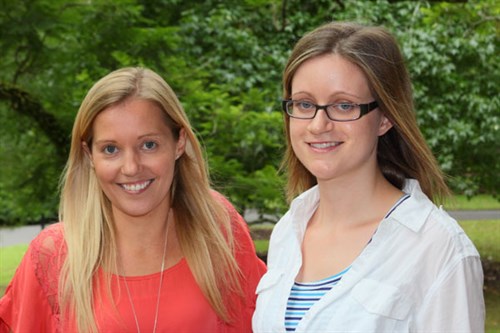International opportunity for young scientists (2011)
In 2011 the Maurice Wilkins Centre launched a new scheme to help its early-career scientists train in cutting-edge technology – and share what they have learned with New Zealand colleagues.
Maintaining New Zealand’s capability in high technology areas is crucial to the Maurice Wilkins Centre’s mission. As well as sponsoring technical workshops in New Zealand, the Centre now offers its early career scientists access to specialist training overseas, whether through attendance at technical workshops run by major research organisations, or short term placements in laboratories where new technologies are being developed.
 The adoption of new technology is often led by early-career scientists and it makes sense to ensure they can access the best training available.
The adoption of new technology is often led by early-career scientists and it makes sense to ensure they can access the best training available.
The new scheme also brings responsibility to help bring these technologies to New Zealand – applicants are required to provide a plan for how they will share their knowledge on their return. Two young scientists were successful applicants in the first round of the scheme.
Dr Anna Brooks, a flow cytometry expert from The University of Auckland, will attend an international technical congress on cytometry in Germany that includes hands-on time at workshops and tutorials.
Flow cytometry allows biologists to determine what cell types are present in a tissue, and examine their attributes, then collect particular cells for further study. The applications are vast – from learning how immune cells respond to disease to isolating rare adult stem cells – and Anna’s facility, equipped by the Maurice Wilkins Centre, provides access to these applications for a wide range of researchers.
“We strive to ensure that our facility is world class, and what better way to do that than to get an intensive update from the world’s experts?” Anna asks. “It will be a one stop shop where I will have access to many of the leaders in the field, from the machine developers to the flow cytometry specialists pioneering new applications.”
Julia MacDonald, a University of Auckland PhD student, will travel to Australia to use equipment not yet available in New Zealand.
“I’m studying a newly-discovered human protein implicated in a rare form of kidney stone disease,” she explains. By using a special centrifuge in Melbourne she will learn more about the protein, and how changes linked with kidney stone disease may affect its structure and function.
But she will also learn how the centrifuge can help advance similar research projects and anticipates that her experience will help other scientists to access the technology in future, either through collaboration or by establishing an equivalent equipment platform in New Zealand.
By making their expertise available to the entire Maurice Wilkins Centre network, these young scientists will be instrumental in ensuring New Zealand biomedical research maintains its technical competitiveness, with the prompt adoption of useful new technology.
Image: Julia MacDonald and Dr Anna Brooks from The University of Auckland, who will undertake specialist technical training overseas. Photograph courtesy of Iain MacDonald